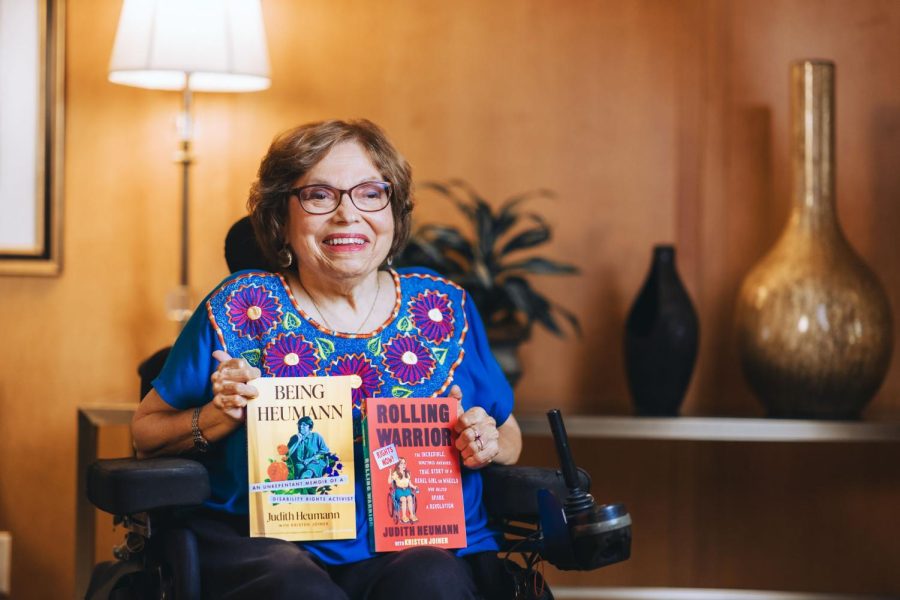Neurodiversity Spotlight – Judy Heumann
October 25, 2022
Judy Heumann is an internationally recognized advocate for disability rights. Heumann’s journey as an activist was featured in the Netflix documentary, Crip Camp: A Disability Revolution. Crip Camp was a nickname of Camp Jened, a summer camp which ran from 1951 to 1977 in the Catskill Mountains of New York, for children, teens, and adults with disabilities. During this time, many Americans with disabilities were stereotyped and discriminated. Influenced by hippie culture, she and other camp counselors protested in the late 60’s and early 70’s, which led to the Americans with Disabilities Act being passed in 1990.
In 1949, Huemann started using a wheelchair as a child when she contracted polio. At age five she was not allowed to attend school for being considered a “fire hazard”. Her mother fought for her education and eventually she was able to attend a special school and public high school. In college she and other students demanded ramps for classrooms. After college, she started working at Camp Jened as a counselor after attending as a camper. In the 70’s Huemann sued the New York Board of Education when they refused to give her a teaching license for “being a fire hazard”. NYBOE settled and she became the first teacher in the state with a wheelchair.
Huemann also took part in many demonstrations. When President Nixon vetoed the 1972 Rehabilitation Act, she protested by blocking the streets of Manhattan, shutting down traffic. She was hauled off an airplane over the right for her seat. Most famously, she launched a sit in at a federal building in San Francisco which lasted 28 days, to enforce crucial sections of the Rehabilitation Act. During that time, she also helped found the Berkeley Center for Independent Living and launch the Independent Living Movement.
In 1983, she co-founded the World Institute on Disability. From 1993 to 2001 she served as the Assistant Secretary of the Office of Special Education and Rehabilitation Services during the Clinton Administration. From 2002 to 2006 she worked as the first Advisor on Disability and Development at the World Bank. In 2010 she was appointed by President Obama to become the first Special Advisor on Disability Rights for the U.S. State Department, where she pushed for an international version of the ADA. Even now in her seventies, Judy Huemann fights for everyone, especially those who are discriminated against for internal or external challenges.
Though Huemann may not be considered neurodiverse, she has faced similar challenges including being discriminated, sidelined, and denied rights, just for being in a wheelchair. She and other former campers from Camp Jened, never saw themselves as different from everyone else and fought to be treated equally. They pushed for allowing accommodations in school, work, and the public so that everyone can have equal access to buildings, education, jobs, and independent living.
Though more work still needs to be done, disability rights have come a long way from the 60’s when many non-neurotypical people were being institutionalized. Judy Huemann and the documentary, Crip Camp, are inspiring examples of advocacy and revolution to be treated fairly. “We don’t feel like we’re handicapped. We feel like we got something that makes us better and stronger, and we’re going to be out there fighting” – Tony Coelho, author of ADA.









